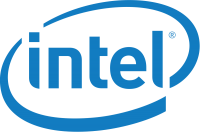Notice: This Wiki is now read only and edits are no longer possible. Please see: https://gitlab.eclipse.org/eclipsefdn/helpdesk/-/wikis/Wiki-shutdown-plan for the plan.
Eclipse IoT Days Grenoble 2015
SAVE THE DATE : May 13-14, 2024
Eclipse IoT Day 2024 is here : https://gitlab.com/EclipseIoTDaysGrenoble/archive/-/wikis/Eclipse_IoT_Day_Grenoble_2024
After the success of the IoT Day 2014, we are back for a second edition! This year, we will have a two-day event, with a combination of talks and tutorials.
We are working on putting together the program so please contact us if you want to present at the event:
- Benjamin Cabé, Eclipse Foundation: benjamin at eclipse dot org
- Didier Donsez, LIG/UJF: didier dot donsez at imag dot fr
Contents
- 1 DATE & LOCATION
- 2 LIVE STREAMING
- 3 REGISTRATION
- 4 SUPPORTING ORGANIZATIONS
- 5 AGENDA
- 5.1 Monday, March 30: Conference sessions
- 5.2 Tuesday, March 31: Hack Day
- 5.2.1 Getting Started with OpenHAB / Eclipse SmartHome
- 5.2.2 Getting Started with RIOT OS
- 5.2.3 End-to-end IoT for Java developers
- 5.2.4 Getting started with STM32 Nucleo
- 5.2.5 Getting started with Intel Edison
- 5.2.6 Open the Box – Create a full Smart Home application on an open standard OSGi platform
- 6 Downtown Hotels
DATE & LOCATION
March 30-31, 2015
Maison Jean Kuntzmann, 110, rue de la chimie, Domaine Universitaire, 38400 Saint Martin d'Hères
Access :http://mi2s.imag.fr/plans-dacces
LIVE STREAMING
REGISTRATION
Registrations are open on our EventBrite page
The conference is sold out, but we will livestream the conference on Monday.
SUPPORTING ORGANIZATIONS
Organizers
Sponsors
AGENDA
Monday, March 30: Conference sessions
08:30 Registration
09:00 "Welcome and Introduction" by Gaël Blondelle (Eclipse Foundation), Noël de Palma (UJF)
09:15 "Eclipse IoT" by Benjamin Cabé (Eclipse Foundation) slides
10:00 "IoT-LAB: a very large scale open testbed" by Eric Fleury (INRIA) slides
10:30 - 10:45 Coffee Break
10:45 "RIOT and the Evolution of IoT Operating Systems & Applications" by Emmanuel Baccelli (INRIA) and Oliver Hahm (INRIA) slides
11:15 "Augmented Things: A Playground for all with the STM32 Nucleo platform" by Roald Neuquelman & Valerie Gondre (ST Microelectronics) slides
12:15 - 14:00 Lunch Break
14:00 "Intel's IoT Strategy" by Jean-Laurent Philippe (Intel) slides
14:30 "Eclipse SmartHome - Smart Home Development Made Easy" by Kai Kreuzer (Deutsche Telekom) slides
15:00 "Open the Box – Customer journey in an open Smart Home" by André Bottaro (Orange Labs) slides
15:30 "Iot scripting with TypeScript in the EU FP7 HEADS project" by Olivier Barais & Johann Bourcier (IRISA) slides
16:00 "RobAIR, an affortable DIY cobot for telepresence" by Jérome Maisonnasse, Amr Alzouhri-Alyafi, Vivien Quema, Didier Donsez slides
16:30 Panel & Wrap up session
17:00 Hackday presentation & registration
17:30 Wine & Cheese Session
Tuesday, March 31: Hack Day
Attendees could prototype tangible things with the fabMSTIC fablab tools.
Bring Your Own Computer (BYOC): Don't forget it ! and an EU plug adapter
Classrooms for the workshops are in the IM2AG building (F107, F109, F112, F114) and in the C building C005.
Getting Started with OpenHAB / Eclipse SmartHome
openHAB is one of the most popular open source solutions for the smart home as it supports a huge variety of different protocols, technologies and systems (see the full list).
In this workshop, we will use the latest openHAB 2 (which is based on Eclipse SmartHome) to integrate very different devices with each other (like Philips hue, Sonos, LIFX, Nest, EnOcean etc.) - every participant is invited to bring his own devices as well! Depending on your skills and wishes, you can either focus on integrating already supported devices and learn how to easily build user interfaces and automation rules. Alternatively, you can dive into developing a binding (i.e. Java code for the integration in openHAB) for your special device.
We will have fun with voice recognition, text-to-speech, gesture control and much more - you are going to love the amazing feature set of openHAB!
Getting Started with RIOT OS
Californium enables developers to integrate CoAP into their applications in no time. But what if your desired IoT infrastructure involves some devices that are so constrained they can't run Linux, let alone a fully-fledged JVM?
This workshop will give you a hands-on introduction to RIOT, the friendly OS for the IoT, and its CoAP infrastructure.
Learn the base: how to build your own RIOT application, flash it on heterogeneous IoT hardware and see it interact with a Californium based application.
See what you've learned in action: we will walk you through the details of watr.li, an IoT application helping plants to stay alive, built with RIOT, off-the-shelf IoT hardware, CoAP and Californium.
Experience what can be achieved with some additional effort!
End-to-end IoT for Java developers
In this tutorial, you will learn how you can use protocols like MQTT and CoAP, together with the Kura IoT Gateway framework to connect and manage end-to-end solutions that leverage the Java and IoT ecosystem.
Getting started with STM32 Nucleo
The highly affordable STM32 Nucleo boards allow to try out new ideas and to quickly create prototypes with any STM32 MCU.
In this "Getting started" session, you will learn how you can program the Nucleo boards with various Arduino shields in order to rapidly prototype IoT applications, using the MBed online IDE. Ressources are here : http://developer.mbed.org/teams/ST/ & http://developer.mbed.org/teams/ST-Americas-mbed-Team/wiki/STM32-Nucleo-ATT-Hackathon
Getting started with Intel Edison
The Intel Edison is a dual-core Atom CPU tiny board offered by Intel as a development system for IoT devices (wearable ...).
In this "Getting started" session, you will learn how you can setup and program the Intel Edison in order to rapidly prototype IoT mashups and applications with Node.js, TypeScript, Eclipse Ponte and Node-RED. Main ressources are here.
Open the Box – Create a full Smart Home application on an open standard OSGi platform
Guest developers will get hands-on experience with a home application model enabling device access rights management, remote software management, distribution by an application store. The control of home devices will be made with OSGi base drivers. They will learn how to play with ZigBee, EnOcean, and some IP devices while managing device access rights, in the service oriented programming paradigm in Java programming language.
With a step-by-step tutorial, they will turn samples calling real sensors into their first complete Smart Home application for Raspberry Pi! Developers can download a selection of different applications made with OSGi bundles delivered by Orange. From then on, they can change and extend samples as they like, and then deploy it to their hardware.
Orange will provide a selection of hardware (Raspberry Pis, sensors, actuators, local routers, etc.) for developers to borrow and follow the tutorial. Developers should bring a laptop with Oracle VirtualBox 4.3.20 on Windows or Linux and will be given a virtual machine with several software items installed and configured. Tutorial materials are on-line and developers will be able to develop with all provided software items after the tutorial.
Downtown Hotels
15 minutes from the Campus by Tram. 10 miuntes minutes max for the railway station by Tram.
| Hôtel de l'Europe | 22 place Grenette, 38000 Grenoble | Tel +33 4 76 46 16 94 | website | |
| Hôtel Angleterre | 5 Place Victor Hugo, 38000 Grenoble | Tel +33 4 38 88 40 40 | website | |
| Hôtel Ibis Grenoble Centre | 5 Rue de Miribel, 38000 Grenoble | Tel +33 4 76 47 48 49 | website | |
| Hôtel Gambetta | 59 Boulevard Gambetta, 38000 Grenoble | Tel +33 4 76 87 22 25 | website | |
| Hotel Europole | 29 Rue Pierre Semard, 38000 Grenoble | Tel +33 4 76 49 51 52 | website | |
| Hôtel Alizé | 1 Rue Amiral Courbet, 38000 Grenoble | Tel +33 4 76 43 12 91 | website |





